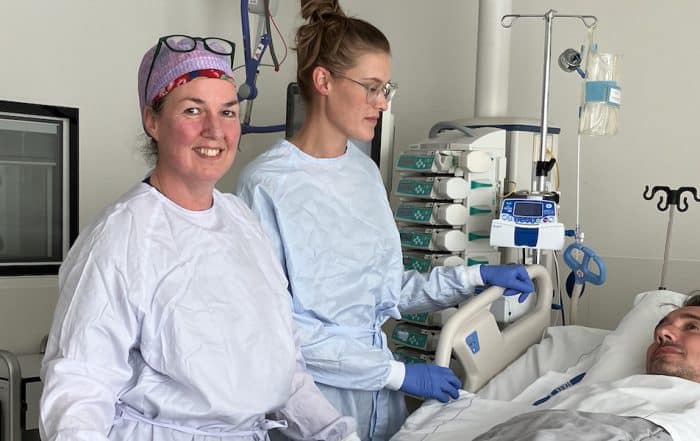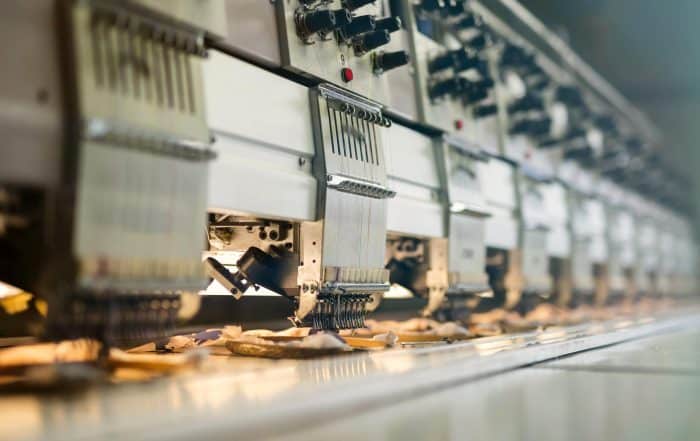Subsidies en leningen voor circulair textiel
Om innovaties verder te brengen en een markt voor circulair textiel te creëren is financiering nodig. Daarvoor is een woud aan regelingen, waar innovatieve textielondernemers nogal eens in verdwalen. Bij de tiende meetup van het initiatief Green Deal Circulair Textiel stond dit complexe onderwerp centraal.
De wereld van subsidies en leningen sluit niet altijd goed aan op de innovatieve wereld waarin circulair-textielondernemers zich begeven. Ze spreken niet altijd dezelfde taal en er is onduidelijkheid over wat voor financieringsmogelijkheden er precies zijn en welke voorwaarden er gelden. Tijdens de meetup gaven ondernemers aan soms precies tussen twee regelingen in te vallen. Voor micro-ondernemingen en niet-technologische innovaties is bijvoorbeeld niet altijd makkelijk financiering te vinden.
In de meetup schepten verschillende sprekers duidelijkheid over de vele financieringsmogelijkheden die er zijn. Hieronder vind je daarvan een overzicht.
KIA CE van de RVO
Een belangrijk adres is de Rijksdienst voor Ondernemend Nederland (RVO). De RVO geeft voert wet- en regelgeving uit en zorgt voor financiering. Maar je kunt ook bij ze aankloppen voor voorlichting en advies en om aan te sluiten bij verschillende netwerken.
Voor ondernemers in circulair textiel zijn er verschillende specifieke en algemene subsidies in de verschillende stadia van innovatie, zo vertelde Wim Boeken tijdens de meetup. Nog tot 7 september kun je bijvoorbeeld subsidie aanvragen voor de Kennis en Innovatie agenda Circulaire Economie (KIA CE). Je kunt een aanvraag indienen voor de technologische ontwikkeling van een product en/of onderzoek naar het gedrag van consumenten, bedrijfs- of verdienmodellen. Deze subsidie geldt niet voor projecten rondom recycling en recovery.
Het project Trashure kreeg vanuit deze regeling in 2021 een subsidie. Lees verder onder de video.
MIA/Vamil
Fiscaal voordelig investeren in milieuvriendelijke bedrijfsmiddelen en technieken kan met de Milieu-investeringsaftrek (MIA) en de Willekeurige afschrijving milieu-investeringen (Vamil). Als je als ondernemer inkomsten- of vennootschapsbelasting betaalt kun je vanuit de MIA tot wel 45 procent van het investeringsbedrag aftrekken en vanuit de Vamil zelfs 75 procent.
De MIA/Vamil kan ook interessant zijn als je een innovatieve, milieuvriendelijke techniek hebt ontwikkeld. Deze techniek kan dan op de Milieulijst terechtkomen, waardoor andere gebruikers profiteren van de fiscale regeling. De marktintroductie en -verbreding van deze techniek wordt zo makkelijker. Technieken voor de recycling van textielafval kunnen hier bijvoorbeeld onder vallen.
VEKI en ketensubsidie
Ook de VEKI-subsidie kan interessant zijn voor ondernemers in circulair textiel. VEKI staat voor Versnelde klimaatinvesteringen industrie en deze subsidie kun je aanvragen als je hoge investeringskosten hebt voor CO2-besparende maatregelen. Het gaat hierbij om investeringen in apparaten, systemen of technieken die zich al bewezen hebben en waarvan de terugverdientijd langer dan vijf jaar is. Het bedrijf Healix deed met succes een beroep op deze regeling. Dit bedrijf recyclet afgedankte touwen en netten.
De laatste regeling die Boeken besprak is de subsidie Circulaire ketenprojecten. Dit is een subsidie voor een groep mkb-ondernemers die een circulair product, proces of dienst wil ontwerpen, produceren of organiseren. Vanuit deze regeling kun je financiële steun en de hulp van een ervaren procesbegeleider krijgen. Deze subsidie kun je nog tot 29 september aanvragen.
ROM InWest
Ook bij de regionale ontwikkelingsmaatschappij InWest zijn er interessante mogelijkheden voor ondernemers in circulair textiel. ROM InWest heeft twee fondsen: het Transitiefonds en het MKB-fonds. Vanuit dat eerste fonds heeft bijvoorbeeld het United Repair Centre al een mooie subsidie gekregen. Ook tex.tracer, dat werkt aan transparantie van de textielketen, kreeg vanuit het mkb-fonds een subsidie.
Een ander interessant fonds is het Amsterdam Klimaat- en Energiefonds van de gemeente Amsterdam. Dat investeert in innovaties die passen in de de Amsterdamse Routekaart Klimaatneutraal en/of de Strategie Circulair. Dit fonds investeerde onder meer in het Amsterdamse textiellab BYBORRE. De Subsidie Economische Structuur en Arbeidsmarktversterking van dezelfde gemeente ondersteunt projecten die bijdragen aan het economisch herstel, de economische structuur en een sterkere arbeidsmarkt binnen de gemeente. Innovatiefonds Noord-Holland financiert startups en innovatieve mkb-bedrijven die in de proof-of-concept-fase zijn. De Rabobank Innovatielening kan jou als circulaire ondernemer helpen met een lening van 25.000 tot 150.000 euro. Deze lening is de eerste twee jaar aflossingsvrij. Ook de Rabo Foundation is voor sociale ondernemingen een interessante samenwerkingspartner.
Bedrijven als Mud Jeans, Makers Unite en Circotex profiteerden al van de steun van DOEN Participaties, een impactfonds van de Nationale Postcode Loterij.
Crowdfunding, Just Transition Fund IJmond, MKB-Innovatiestimulering Regio en Topsectoren en Kansen voor West zijn andere financieringsmogelijkheden. Een uitgebreid overzicht van alle mogelijkheden vind je op de website van het Versnellingshuis Circulaire Economie. Kom je er niet uit? Dan geeft het Versnellingshuis je ook graag advies.
Ons initiatief Green Deal Circulair Textiel heeft een ambitieus doel: in 2030 is de textielsector in de regio voor 70 procent circulair, om daarna zo snel mogelijk volledig circulair te worden. Voorlopers in deze sector werken hier al hard aan. Zie jij ook kansen in dit mooie ecosysteem en wil je meedoen? Neem dan contact op met Claire Teurlings.
4 juli 2023
Meer weten over
Neem contact op
Blijf jij ook op de hoogte?
8x per jaar nieuws en events uit de regio: schrijf je in voor de Board Update nieuwsbrief
Deel dit artikel
Wil je op de hoogte blijven?
Volg ons dagelijks op LinkedIn en schrijf je in voor de Board Update nieuwsbrief.
Lees ook deze berichten
- Met de selectie van vier kanshebbers is de regionale voorronde van de ...
- Met meer dan 80 ondernemers, 40 investeerders en diverse dienstverleners bood LSH Capital Match ...
- In tijden van geopolitieke spanningen, technologische revoluties en politieke onzekerheden is het ...




